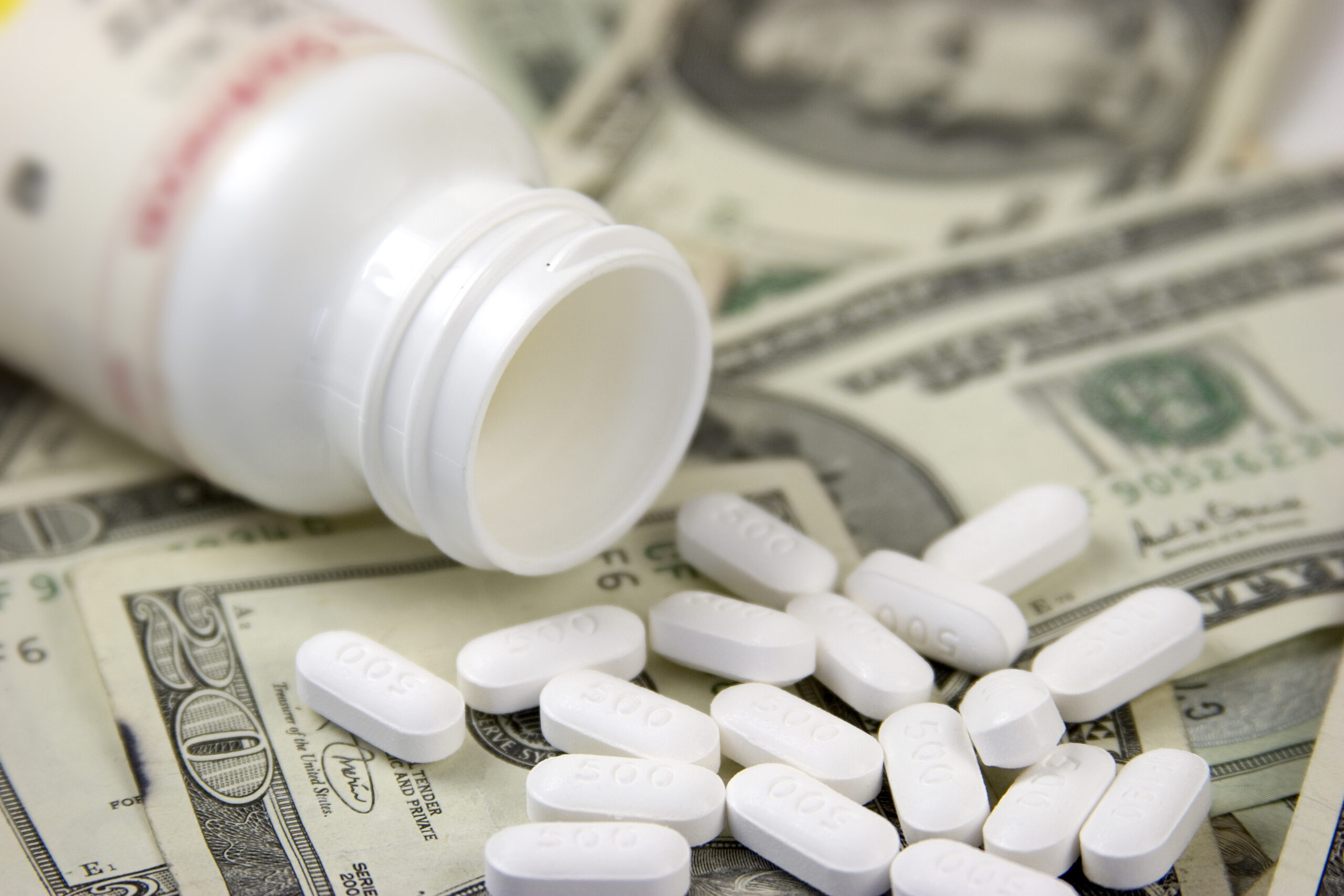© 2024 CSRXP- All Rights Reserved

DOSE OF REALITY: NEW ANALYSES UNDERSCORE HOW BIG PHARMA’S EGREGIOUS PRICING OF WEIGHT LOSS DRUGS IS UNSUSTAINABLE
Apr 25, 2024
Two Reports Explore Cost for U.S. Patients and the U.S. Health Care System of Big Pharma’s Out-of-Control Prices on GLP-1s
Two new analyses released Wednesday highlight how the egregious prices set by Big Pharma on GLP-1 weight loss drugs are unsustainable for U.S. patients and the U.S. health care system.
The first analysis in the American Journal of Health-System Pharmacy reveals that overall spending on GLP-1 products in 2023 reached $63 billion. According to coverage of the article in STAT News, “GLP-1 treatments were a main driver of the increase in overall drug spending by health entities,” which grew 13.6 percent in the year, reaching $722.5 billion total.
Several GLP-1 weight loss products contributed to this surge in spending, including semaglutide, marketed as Ozempic and Wegovy, which was the best-selling medication in the U.S. in 2023. Expenditures on the product reached $38.6 billion total. Meanwhile, spending on tirzepatide, another GLP-1 product, marketed as Mounjaro and Zepbound, reached $13.2 billion in 2023, almost a 400 percent increase from 2022.
A separate analysis released Wednesday by the Kaiser Family Foundation (KFF) found coverage of just one GLP-1, Wegovy, could cost the Medicare Part D program $2.8 billion in a single year. The analysis examines the potential impact of a recent decision from the U.S. Food and Drug Administration (FDA) to approve Wegovy as a treatment for patients with heart problems who are obese or overweight, which could open the door to Part D coverage for some beneficiaries.
According to KFF’s analysis, just over a quarter of Part D enrollees who are obese, or overweight qualify for Wegovy under the FDA’s recent approval of the drug, or around 3.6 million patients. If Wegovy is covered for just 10 percent of these patients, or an estimated 360,000 people, it, “would amount to additional net Medicare Part D spending of $2.8 billion for one year for this one drug alone.”
KFF’s analysis also highlights how the high list price of the drug could be a barrier to access for Part D enrollees, even those who are eligible to have the drug covered at least in part by the Part D program.According to the analysis, eligible patients could still “face monthly costs of $325 to $430,” given Wegovy’s list price of $1,300 per month.
Both analyses build on other recent research, including from the Congressional Budget Office (CBO), which found that Big Pharma’s egregious pricing of these GLP-1 weight loss products is unsustainable for patients, taxpayers, and the U.S. health care system.
In March, CBO predicted that covering GLP-1 weight loss drugs “at their current prices, would cost the federal government more than it would save from reducing other health care spending.”
During a December 2023 hearing in the U.S. Senate Committee on Health, Education, Labor & Pensions (HELP), expert witness Kasia Lipska, M.D., M.H.S, Associate Professor of Medicine at the Yale School of Medicine explained how Big Pharma’s egregious pricing practices on this new category of drugs present staggering potential costs.
“The price tags for these new medications are simply outrageous,” Dr. Lipska said. “Ozempic, the brand name for Semaglutide approved for type 2 diabetes and marketed by Novo Nordisk, has a U.S. list price of over $900 per month. Wegovy, the brand name for the same drug approved for obesity, is $1,300 per month…”
“…If Medicare were to fully cover Wegovy for all of its beneficiaries with obesity for one year, we as American taxpayers would end up with a $268 billion invoice,” Dr. Lipska continued. “To give you some perspective, that’s 70 percent of all the money that was spent on prescription drugs in the U.S. in 2021. And could we stop at one year? Probably not. What we know about Semaglutide and the related medications is that they work while people take them. However, as soon as they stop, their weight comes back, so patients are looking at a potentially lifelong treatment, and we could be facing the most expensive subscription service in the history of medicine.”
Dr. Lipska also highlighted how Big Pharma has targeted the U.S. for egregious prices compared to prices for the same drugs in other countries. “Ozempic has been priced at roughly $100 per month in Sweden and just $80 in Australia and France,” Dr. Lipska said. “That’s 10 percent of what we’re being asked to pay.”
Big Pharma’s pricing of these GLP-1 products is unsustainable. Policymakers should hold Big Pharma accountable for their price-gouging.
Read more about Big Pharma’s egregious pricing practices on GLP-1 weight loss drugs HERE and HERE.
Read more on Big Pharma’s anti-competitive tactics around GLP-1 weight loss drugs HERE.
Read more on bipartisan, market-based solutions to hold Big Pharma accountable HERE.
